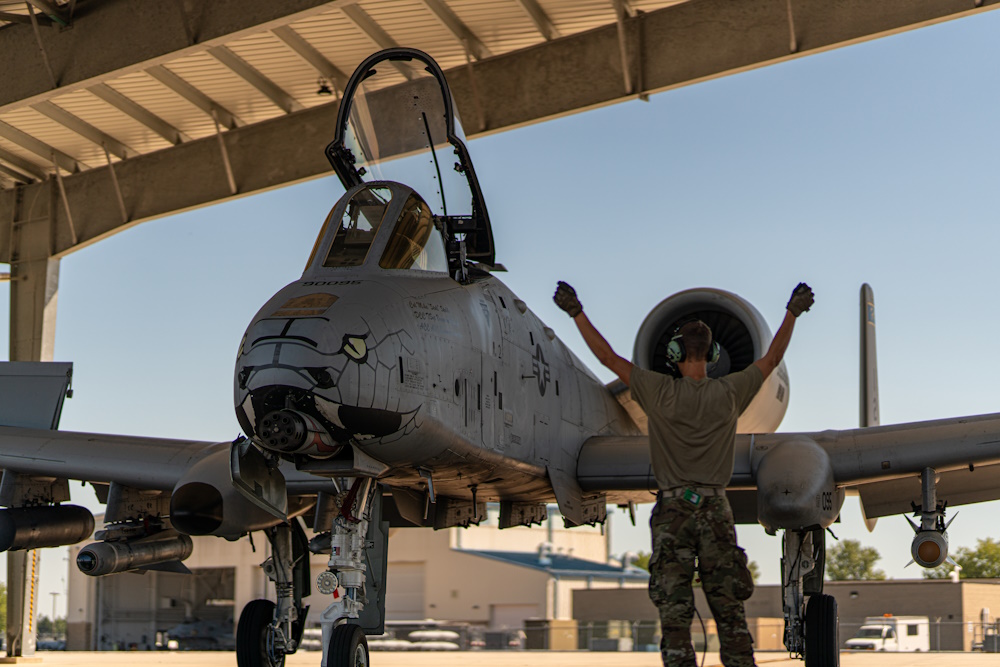Definition
In military operations, downloading refers to the removal or reduction of weapons, equipment, or cargo from a vehicle, particularly an aircraft or ship. It can also be used to denote the process of transferring digital files from a higher level of a system to a lower one. This term is often applied when reallocating resources or adjusting the load of the vehicle or platform for performance reasons.
Key Takeaways
- Downloading in military operations often refers to the process of transferring information from higher headquarters to lower echelons or between different systems or networks. It ensures coordinated actions based on shared and current situational awareness and commands.
- It’s a critical aspect of communication in military operations. This could range from communication of orders, strategies, tactics, or relaying information gathered from intelligence sources.
- While downloading is critical for efficient military operations, it is also associated with security challenges. Therefore, the military utilizes advanced secure transmission methods and encrypted channels for downloading to avoid interception, prevention of data corruption or loss, and ensure the confidentiality of the data being transferred.
Importance
Downloading, in military operations, refers to the process of transferring data or intelligence from one system to another, often from a satellite or drone to a ground station.
This term is notably important as it directly impacts the efficiency and effectiveness of military operations.
Up-to-date and accurate data is crucial in making informed tactical and strategic decisions, ensuring the safety of troops, and achieving mission objectives.
Real-time or near-real-time data can be essential in rapidly changing combat situations, allowing for timely responses to threats or adjustments to plans.
At the same time, it is also significant for after-action reviews and intelligence analysis, helping to facilitate lessons learned and future operational planning.
Explanation
Downloading, in military operations, primarily refers to the practice of gathering and transferring data from a source system to a target system for reasons related to operational efficiency, strategy, and security. The purpose of this practice is to ensure important information from different sources, like surveillance systems, satellites, or other military communications systems, is made accessible across multiple platforms.
This is especially vital in scenarios where real-time or nearly real-time exchange of information is critical to success. The information downloaded can range from geospatial data, enemy coordinates, photographs, videos, or even critical mission directives that guide strategic decision-making.
In the age of advanced technology and information warfare, the process of downloading plays an indispensable role in helping military forces obtain a strategic advantage. For instance, drone operators often depend on downloading data from drones to analyze the conditions on the ground, to plan precise operations, or to conduct post-mission analysis.
In essence, the practice of downloading is used to ensure swift and efficient data flow, thus facilitating informed and strategic decision-making, enhancing situational awareness, and offering clear communication lines that are necessary in military operations. As a result, downloading greatly contributes to mission success and overall operational efficiency.
Examples of Downloading
Operation Anaconda (2002): In this operation, the U.S. military forces in Afghanistan were tasked against the Taliban and Al-Qaeda militants in the Shah-i-Kot Valley and Arma Mountains. Prior to the operation, significant intelligence data was downloaded to support strategic planning. This included topography data, previous engagement reports, and civilian activity to ensure the success of the operation and the safety of civilians.
Mission by U.S. Navy SEALs to capture Osama bin Laden (2011): Codenamed Operation Neptune Spear, this operation involved downloading extensive data from various sources, such as the CIA and other intelligence agencies. The data regarding Bin Laden’s compound, procedures for confirming his identity, and strategies for dealing with potential contingencies were downloaded and used for planning and executing the mission.
Iraq War (2003-2011): Downloading was used extensively during the Iraq War. For instance, drone footage was downloaded and analyzed to identify defensive positions, potential threats, and movements of the enemy combatants. This data was vital for real-time tactical decision-making and planning of offensive and defensive operations.
FAQs on Downloading Military Operations Data
1. How do I download military operations data?
To download military operations data, you need to visit the official military website or third-party platforms providing such datasets. Always ensure you have the necessary permissions to access and download this data.
2. Are there any restrictions on downloading this data?
Yes, downloading military operations data is restricted and normally requires authority clearance due to its sensitive nature. Some information may be classified or restricted to specific personnel.
3. Is it safe to download military operations data?
It is safe to download such data provided you are using secure and official channels. Always ensure that your device is secure and has the required antivirus software to prevent against any potential cyber threats.
4. Can I share downloaded military operations data?
Sharing of downloaded military operations data is typically not permitted due to confidentiality and security reasons. Always adhere to the guidelines provided during the download process and by your superior officers.
5. What format is the military operations data in when downloaded?
Military operations data can be downloaded in a variety of formats, including CSV, Excel, or PDF, among others. The format would often depend on the platform from which they are being downloaded.
Related Military Operation Terms
- File Transfer Protocol (FTP)
- Document Encryption
- Remote Access
- Software Updates
- Digital Content Delivery
Sources for More Information
Sure, here are four reliable sources for learning more about the term “Downloading” in the military operative context:
- Department of Defense: The official webpage of the U.S. Department of Defense offers a wealth of information on various military terms and operations.
- The Joint Chiefs of Staff: As the senior-most body within the defense department, the Joint Chiefs of Staff’s webpage provides a broad overview of many military operations and terminology.
- U.S. Government’s Official Web Portal: A section on this website is dedicated to military resources, providing information on different military operations.
- RAND Corporation: As a global policy think tank, RAND provides research and analysis in various military fields and could possess useful studies about “Downloading.”
 Benefits.com Advisors
Benefits.com Advisors
With expertise spanning local, state, and federal benefit programs, our team is dedicated to guiding individuals towards the perfect program tailored to their unique circumstances.
Rise to the top with Peak Benefits!
Join our Peak Benefits Newsletter for the latest news, resources, and offers on all things government benefits.



















